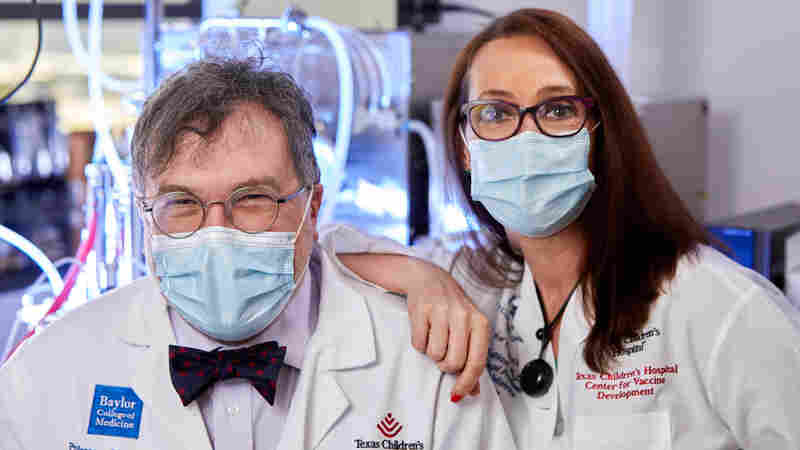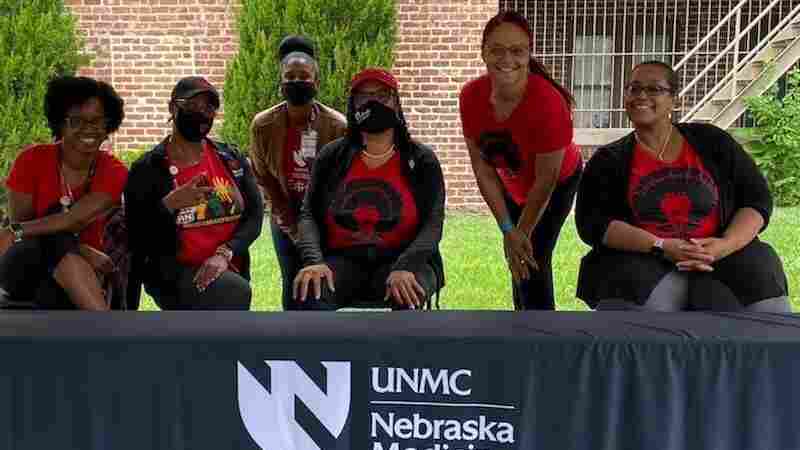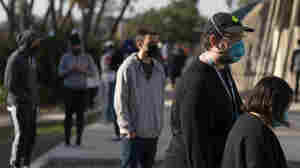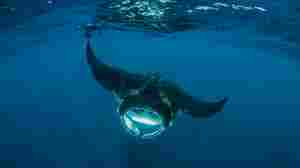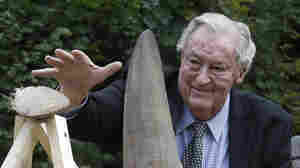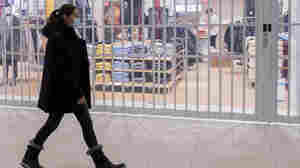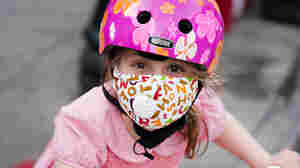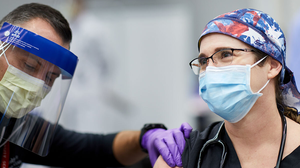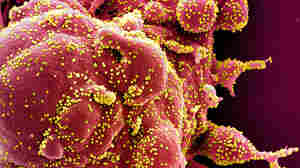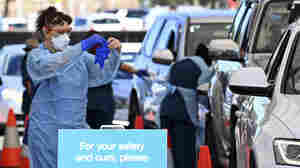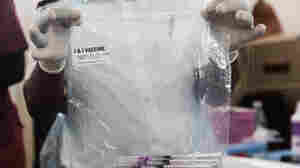Starting this month, alert consumers may have noticed labels on some foods that say "bioengineered" or "derived from bioengineering," per new federal standards. Ted S. Warren/AP hide caption
Science
Dr. Peter Hotez and Dr. Maria Elena Bottazzi of Texas Children's Hospital and Baylor College of Medicine have developed a COVID-19 vaccine that could prove beneficial to countries with fewer resources. Max Trautner/Texas Children's Hospital hide caption
A Texas team comes up with a COVID vaccine that could be a global game changer
Dr. Jasmine Marcelin has been involved with free community events in North Omaha to provide and address concerns about the COVID-19 vaccines. Taylor Wilson / Nebraska Medical Center hide caption
People wait in line for a coronavirus test in Los Angeles on Tuesday. California is starting to feel the full wrath of the omicron variant. Hospitalizations have jumped nearly 50% since Christmas and models show that in a month, the state could have 22,000 people in hospitals, which was the peak during last winter's epic surge. Jae C. Hong/AP hide caption
On Tuesday, engineers successfully finished deploying the James Webb Space Telescope's sunshield, seen here during testing in December 2020 at Northrop Grumman in Redondo Beach, Calif. Chris Gunn/NASA hide caption
People line up to get tested for COVID-19 in Washington, D.C., on Wednesday. More than 1 million positive COVID-19 tests were recorded in the U.S. on Monday, according to data from Johns Hopkins University. Eva Hambach/AFP via Getty Images hide caption
There are two known species of manta ray, the giant manta ray and the reef manta ray. Both populations are at-risk due to threats like fisheries and pollution. The IUCN lists the giant manta ray as endangered and the reef manta ray as vulnerable. Rachel T Graham/MarAlliance hide caption
Richard Leakey, Kenyan wildlife conservationist, places a rhino horn to be burned at the zoo in Dvur Kralove, Czech Republic, in 2017. Leakey, known for his fossil-finding and conservation work in his native Kenya, has died at 77. Petr David Josek/AP hide caption
A nurse practitioner fills a syringe with the Pfizer COVID-19 vaccine at the Beaumont Health offices in Southfield, Mich., on Nov. 5. Jeff Kowalsky/AFP via Getty Images hide caption
A woman walks by a closed store in a shopping mall in Montreal, Sunday as the COVID-19 pandemic continues in Canada. Some new measures put in place by the Quebec government, including the closure of stores, go into effect today. Graham Hughes/AP hide caption
Delta-8-THC is derived from the cannabidiol (CBD) in hemp plants. Gillian Flaccus/AP hide caption
Dr. Anthony Fauci said on Sunday that the CDC was considering adding testing negative to its recommendations for when people could stop isolating after testing positive. Anna Moneymaker/Getty Images hide caption
As the coronavirus pandemic drags on, there are still a lot of questions to be answered about how to keep kids safe. Cindy Ord/Getty Images hide caption
A pediatrician's advice to parents of kids under 5 on omicron, travel and day care
When Dr. Tiffany M. Osborn received her COVID-19 vaccination shortly after vaccines became available in late 2020, she felt hopeful about the pandemic's trajectory. A year later, she's sad and frustrated to see so many COVID patients in the ICU. Matt Miller / Washington University School of Medicine hide caption
ICU teams report fatigue and frustration as they brace for omicron surge
A colorized electron micrograph image of a cell (red) infected with with SARS-CoV-2 virus particles (yellow), isolated from a patient sample. Science Source hide caption
Health care workers administer COVID-19 tests at a drive-through clinic in Sydney, Friday, Dec. 31. Australian health authorities have reported a record 32,000 new virus cases, many of them in Sydney. Bianca De Marchi/AP hide caption
A health care worker holds doses of J&J; vaccines at the Gandhi Phoenix Settlement in Bhambayi township, South Africa, on Sept. 24. A study of the J&J; booster shot in the country had promising results against the omicron variant. Rajesh Jantilal/AFP via Getty Images hide caption
New COVID studies show promise for the Johnson & Johnson vaccine booster
A Pileated Woodpecker (Dryocopus pileatus) flies around a residential neighborhood in Silver Spring, Maryland, on April 28, 2012. The non-migratory Pileated woodpecker is the largest of the common woodpeckers found in most of North America. JEWEL SAMAD/AFP via Getty Images hide caption
The sun sets over the dark Manhattan skyline on August 14, 2003. A power outage affected large parts of the northeastern United States and Canada. Robert Giroux/Getty Images hide caption

